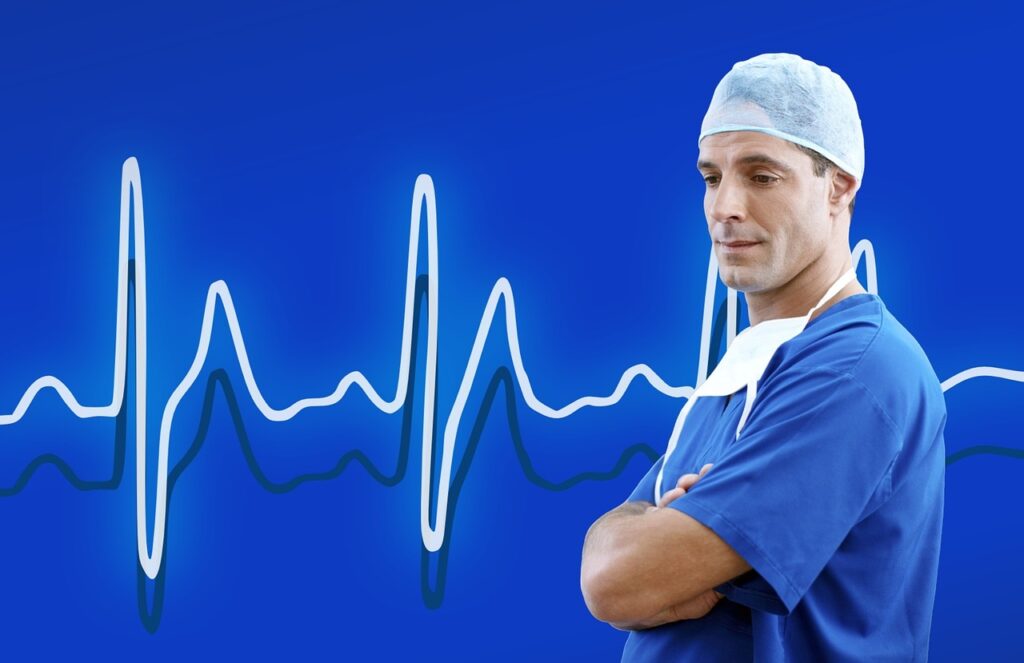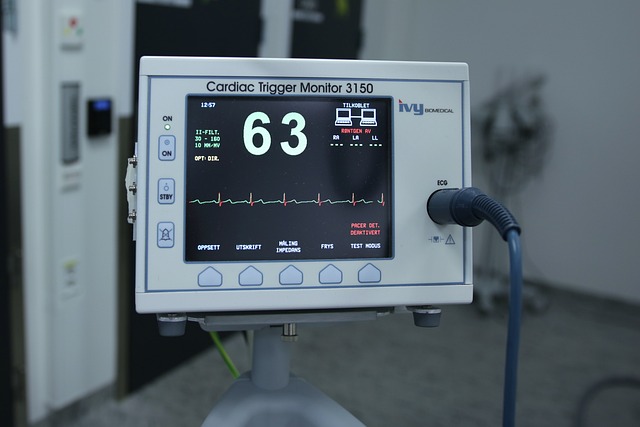Introduction:
Sudden Increase in Heart Rate? If you’ve ever felt your heart racing unexpectedly or have concerns about your cardiovascular health, you’re in the right place. Welcome to our blog, where we aim to provide valuable information and insights into the world of health. In this article, we will delve into the topic of tachycardia, a condition characterized by an abnormally rapid heartbeat, and explore its causes, symptoms, and potential solutions. Whether you’re looking to better understand the behavioral and environmental factors that can contribute to heart rate spikes or seeking information on medical conditions that may cause irregular heart rhythms, we’ve got you covered. So, let’s dive in and empower ourselves with knowledge to ensure a healthier heart.
Understanding Sudden Increase in Heart Rate: Causes and Symptoms:
Tachycardia is a medical condition characterized by a heart rate over 100 beats per minute. There are several different types of tachycardia, including sinus tachycardia, atrial fibrillation, atrial flutter, ventricular tachycardia, supraventricular tachycardia (SVT), and ventricular fibrillation.
Tachycardia can be caused by various factors such as exercise, stress, irregular heart rhythms, heart disease, and certain medical conditions. While a fast heart rate is not always a concern, tachycardia can sometimes be a warning sign of an underlying medical condition that requires attention.
Untreated tachycardia can lead to serious health problems, including heart failure, stroke, or sudden cardiac death. Therefore, it is important to consult with a healthcare professional for an accurate diagnosis and appropriate treatment plan for tachycardia.
Treatment for tachycardia may include lifestyle changes, medication, cardioversion, or surgery, depending on the specific type and cause of tachycardia. Lifestyle changes may involve reducing stress, avoiding triggers such as caffeine or alcohol, getting enough sleep, and quitting smoking.
If you are experiencing symptoms such as heart palpitations, rapid heartbeat, or any other signs of tachycardia, it is important to seek medical attention to determine the cause and receive appropriate treatment. Your healthcare provider will be able to guide you through the diagnosis process and recommend the best course of action for managing your tachycardia.
Managing Heart Rate Spikes: Behavioral and Environmental Factors:
Heart rate spikes or increase in heart rate can be influenced by a variety of factors, both behavioral and environmental. Understanding these factors is crucial in effectively managing heart rate increase and promoting overall heart health.
Behavioral factors such as stress, exercise, and caffeine consumption can contribute to an increase in heart rate. When we experience stress, our body releases stress hormones that can cause our heart rate to rise. Similarly, engaging in intense exercise or consuming excessive amounts of caffeine can also stimulate the heart and lead to a higher heart rate.
On the other hand, environmental factors can also play a role in heart rate spikes. Temperature, humidity, and air quality can all impact our cardiovascular system. Extreme temperatures can put stress on the body, causing the heart to work harder and resulting in an elevated heart rate. Additionally, poor air quality or high humidity levels can make it more difficult for our bodies to regulate temperature, leading to an increased heart rate.
Managing heart rate spikes is important not only for preventing potential health issues but also for improving overall well-being. If you experience severe symptoms or if heart beat spikes are persistent, it is essential to seek medical attention. A healthcare professional can assess your condition and provide appropriate guidance and treatment options.
In addition to medical intervention, there are several techniques that can help manage heart beat spikes. Deep breathing exercises, relaxation techniques, and making lifestyle changes such as reducing stress and avoiding triggers like caffeine or excessive exercise can all contribute to better heart rate control.
By understanding and addressing both behavioral and environmental factors, we can take proactive steps towards improving our heart health and overall quality of life.
Medical Conditions that Cause Irregular Heart Rhythms:
Irregular heart rhythms, known as arrhythmias, can manifest as rapid, slow, or irregular heart rates. These conditions can cause symptoms such as heart flutters, palpitations, loss of exercise tolerance, shortness of breath, or fainting. One common type of arrhythmia is Atrial Fibrillation (AFib), which occurs more frequently as we age. AFib occurs when the upper chambers of the heart quiver instead of beating regularly. While some people with AFib may experience symptoms like palpitations, fatigue, or chest discomfort, others may not feel any symptoms at all, and it may be discovered during a routine check-up.
It is important to address AFib promptly as it is a leading cause of stroke and can weaken the heart, potentially leading to heart failure if left untreated.
Tachycardia is another type of irregular heart rhythm characterized by an abnormally fast heartbeat. It can be a symptom of various heart conditions. Other factors that may cause tachycardia include fever, excessive alcohol use, caffeine, high or low blood pressure, changes in electrolyte levels, certain medications, hyperthyroidism, anemia, smoking or nicotine use, and the use of illegal stimulants. In some cases, the exact cause of tachycardia may not be known.
Conduction disorders, specifically heart block, can also disrupt the electrical signals that enable the heart to pump blood, resulting in irregular heart rhythm and rate. Symptoms of heart block can include fatigue, dizziness, slow heart rate, shortness of breath, heart palpitations, chest pain, abdominal pain, nausea, and fainting. Treatment for heart block varies depending on the severity, with milder forms requiring monitoring and higher degrees necessitating a pacemaker.
Dehydration can also have an impact on heart rate and overall function. Symptoms of dehydration include decreased exercise performance, decreased thinking abilities, mood changes, and fatigue. Dehydration can increase heart rate by affecting the function of the heart and blood vessels, the sympathetic nervous system, and the body’s ability to regulate blood pressure.
If you suspect any anomalies in the rhythm of your heart rate or experience concerning symptoms, it is important to contact a healthcare professional for a proper diagnosis and appropriate treatment.
If you detect any irregularities in your heart rate pattern or encounter concerning symptoms, it is imperative to promptly seek the guidance of a healthcare provider to obtain an accurate diagnosis and receive the suitable treatment. Neglecting potential anomalies in your heart rhythm could lead to complications or exacerbation of the underlying condition. Therefore, it is crucial to prioritize your health by consulting a medical professional who can assess your symptoms and develop an individualized care plan based on their expertise. Act responsibly and take proactive measures to ensure the well-being of your cardiovascular system.
If you experience a sudden increase in heart rate, it is crucial to seek immediate medical attention. Ignoring this symptom could have serious consequences for your cardiovascular health. Promptly consult a healthcare provider to accurately diagnose the cause of the rapid heart rate and determine the appropriate course of treatment. Neglecting such irregularities may lead to complications or worsen the underlying condition. Therefore, prioritize your well-being by taking proactive measures and seeking professional medical guidance to ensure the optimal functioning of your cardiovascular system.
Treatment Options for Tachycardia: Medications and Procedures:
When it comes to treating tachycardia, there are several options available depending on the type and severity of the arrhythmia. One common treatment approach is the use of medications, specifically anti-arrhythmic drugs, which work by changing the electrical signals in the heart and preventing abnormal heart rhythms from occurring.
In some cases, a follow-up electrophysiology study may be conducted to ensure that the medication is working effectively. This study helps doctors determine which specific drug is best suited for the individual patient.
Another treatment option for tachycardia is the use of implantable devices, such as pacemakers. These devices are typically used to treat slow heart rhythms and work by delivering small electrical impulses to stimulate the heart to beat when it is not beating fast enough.
Additionally, it is important to address any underlying factors that may be contributing to tachycardia. For example, dehydration can increase the risk of heart disease and worsen heart rhythm problems. In cases of severe dehydration, intravenous fluids may be necessary to restore hydration levels. It is also important to be mindful of certain medications that can affect heart rate and cause irregular rhythms, such as anesthetics, antibiotics, antidepressants, and thyroid medications.
Furthermore, lifestyle factors such as sleep deprivation and stress can also impact heart health and contribute to tachycardia. Adopting good sleep habits, reducing stress through relaxation techniques like meditation, and managing overall stress levels can help reduce the risk of developing or worsening arrhythmias.
In summary, there are various treatment options available for tachycardia, including medications, implantable devices, and addressing underlying factors such as dehydration, medication effects, sleep deprivation, and stress. It is important to work closely with a healthcare professional to determine the most appropriate treatment plan for each individual case.
Stress and Heart Health: Managing the Impact on Heart Rate :
Managing the impact of stress on heart rate is crucial for maintaining heart health. Stress can have various effects on the heart, and it is important to recognize and address these effects to minimize the risk of serious heart problems.
One surprising aspect of the connection between stress and heart health is that stress can arise in many different scenarios, including relationships, jobs, and sporting events. This means that even seemingly “good” situations can take a toll on heart health.
For example, going through multiple divorces can significantly increase the risk of heart attack, comparable to the risk posed by smoking or diabetes. This highlights the long-lasting impact that stress can have on heart health.
One symptom of stress on the heart is a fluctuating heart rate, also known as arrhythmia. Arrhythmia occurs when the heart rhythm changes within a short period of time, and it can be caused by a range of heart problems. If an individual experiences a sudden increase in their heart beat rate along with other symptoms such as dizziness, chest pain, shortness of breath, or pain in the neck, arms, back, jaw, or stomach, it is important to seek emergency medical attention.
Arrhythmia, if left untreated, can increase the risk of cardiac arrest, heart failure, stroke, and other complications. However, with proper treatment and management, many people with arrhythmia can continue to live their daily lives.
One specific type of arrhythmia is supraventricular tachycardia (SVT), where the heart suddenly beats much faster than normal. SVT is generally not considered serious, but some individuals may require treatment. It occurs when the electrical system that controls heart rhythm malfunctions, causing the heart rate to exceed 100 beats per minute. This can happen even during rest or exercise.
Various factors can contribute to SVT, including stress, anxiety, changes in posture, certain medications, alcohol, caffeine, smoking, and recreational drugs. Treatment for SVT varies depending on the individual’s specific condition, symptoms, and overall health.
In Summary:
Understanding sudden increase in heart rate is crucial for individuals concerned about their heart health or experiencing heart rate issues. By exploring the causes, risks, and solutions related to tachycardia, we have gained valuable insights into managing heart rate spikes. From addressing behavioral and environmental factors to identifying medical conditions that may contribute to irregular heart rhythms, we have equipped ourselves with the knowledge needed to take control of our cardiovascular well-being. Additionally, we have learned about the various treatment options available, including medications and procedures, to effectively manage tachycardia. Lastly, we have recognized the impact of stress on heart health and the importance of implementing strategies to reduce its effects on heart rate. Armed with this understanding, we can make informed decisions to promote a healthier heart and overall well-being. Remember, knowledge is power when it comes to taking care of our hearts, so let’s prioritize our cardiovascular health and live life to the fullest.
Sources:
Tachycardia: Symptoms, Causes, Diagnosis, Treatment – WebMD
Influence diagram of physiological and environmental factors … – NCBI
Types of Arrhythmias – Mount Sinai Heart







Your point of view caught my eye and was very interesting. Thanks. I have a question for you.